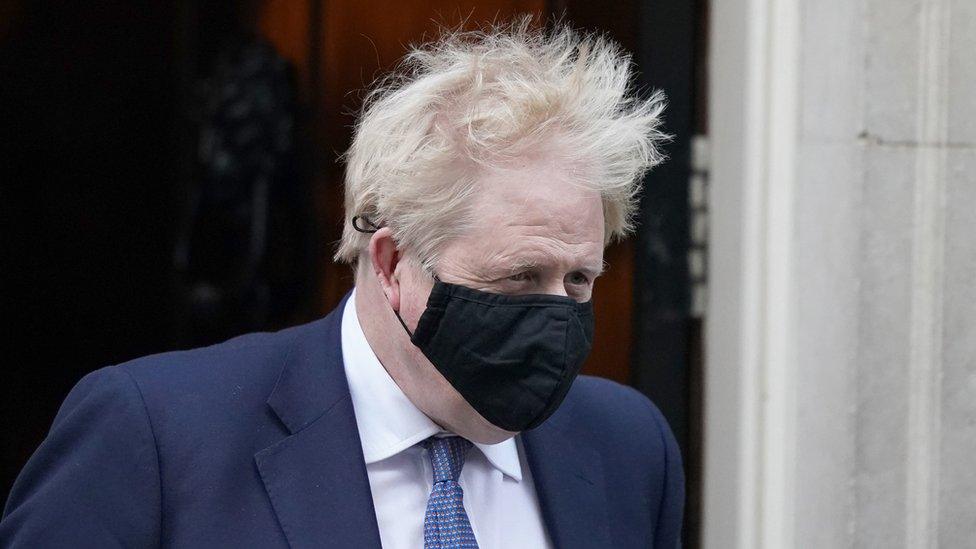Boris Johnson under fire over Tory donor's Great Exhibition plan
- Published
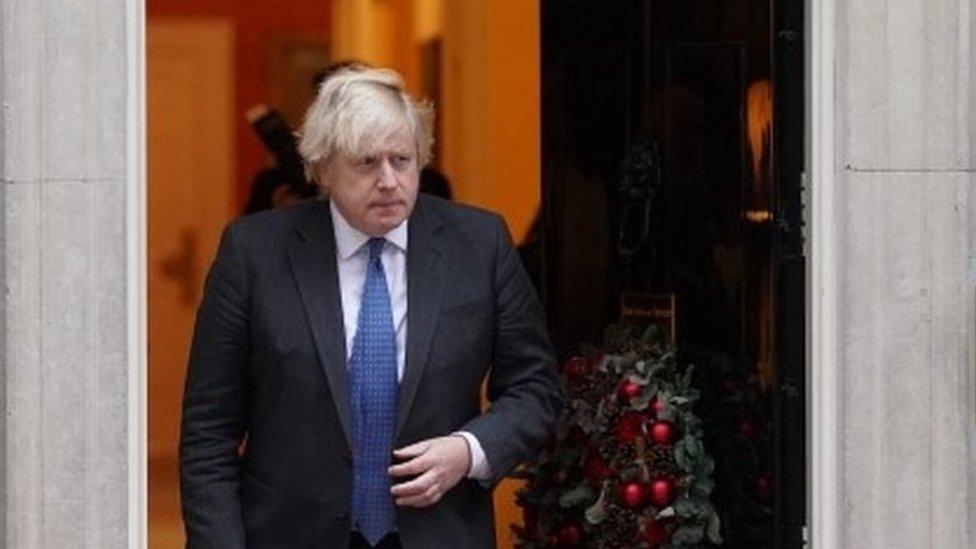
Boris Johnson is facing questions over his backing for a Tory donor's pet project while at the same time asking him for help to pay for a designer revamp of his Downing Street flat.
Text messages published on Thursday show the PM asking Lord Brownlow to clear spending on the renovations as the flat was "a bit of a tip".
He told Lord Brownlow he would take action on his "great exhibition plan".
The Tory peer then had a meeting with a government minister about this plan.
Lord Brownlow is a trustee of London's Albert Hall and he, along with other representatives of the venue, met then culture secretary Oliver Dowden to discuss the possibility of hosting the cultural festival.
The meeting took place at the Albert Hall six weeks after the text exchange with the prime minister. No 10 said it was arranged through "the usual official channels".
In the end, the exhibition did not happen, but Labour say Lord Brownlow's November 2020 text exchanges with the PM still matter.
Speaking to the BBC, Labour's shadow justice secretary Steve Reed said: "The issue is not whether it [the festival] happened, it is whether rich people can pay to get access to government ministers to try and influence them over how they decide to spend taxpayers' money."
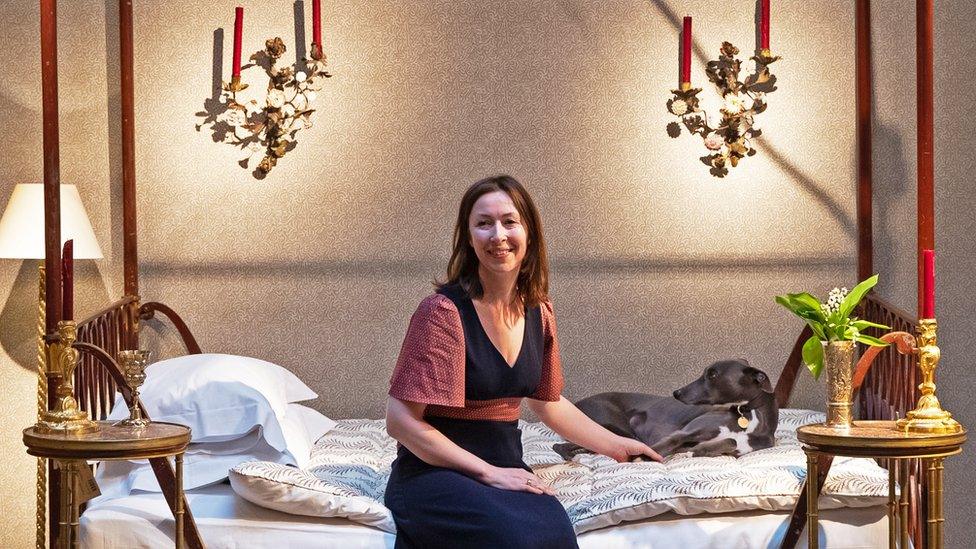
Designer Lulu Lytle was commissioned to help decorate the prime minister's Downing Street flat
The texts between Mr Johnson and Lord Brownlow were revealed during a separate investigation by the elections watchdog into the funding of the refurbishment, estimated to have cost £112,000.
Mr Johnson was strongly criticised by his standards adviser Lord Geidt for not disclosing the messages during an official inquiry into the Downing Street flat renovations.
However, Lord Geidt said he would not have changed the verdict of his original investigation last year that Mr Johnson had not breached the ministerial code.
Defending the prime minister, Health Secretary Sajid Javid said Lord Geidt was "fiercely independent" and had found there was there was "no conflict of interest whatsoever".
But, Labour's deputy leader Angela Rayner argued that the ministerial code prohibits not just actual but also perceived conflicts of interest.
Sajid Javid says the "important thing" from Lord Geidt's report is that the ministerial code "has been met at all times."
"A reasonable person could surely perceive that his [Lord Brownlow's] financial relationship with the prime minister has provided him with privileged access to government, and that relationship was undeclared at the time," she wrote in a letter to Lord Geidt.
She said the adviser in his original report had decided the relationship did not constitute a conflict of interest because he believed Lord Brownlow's motivations had been altruistic.
Ms Rayner said this was not the test set in either the ministerial code or the rules for MPs, and urged him to either amend his original investigation or amend the existing one.

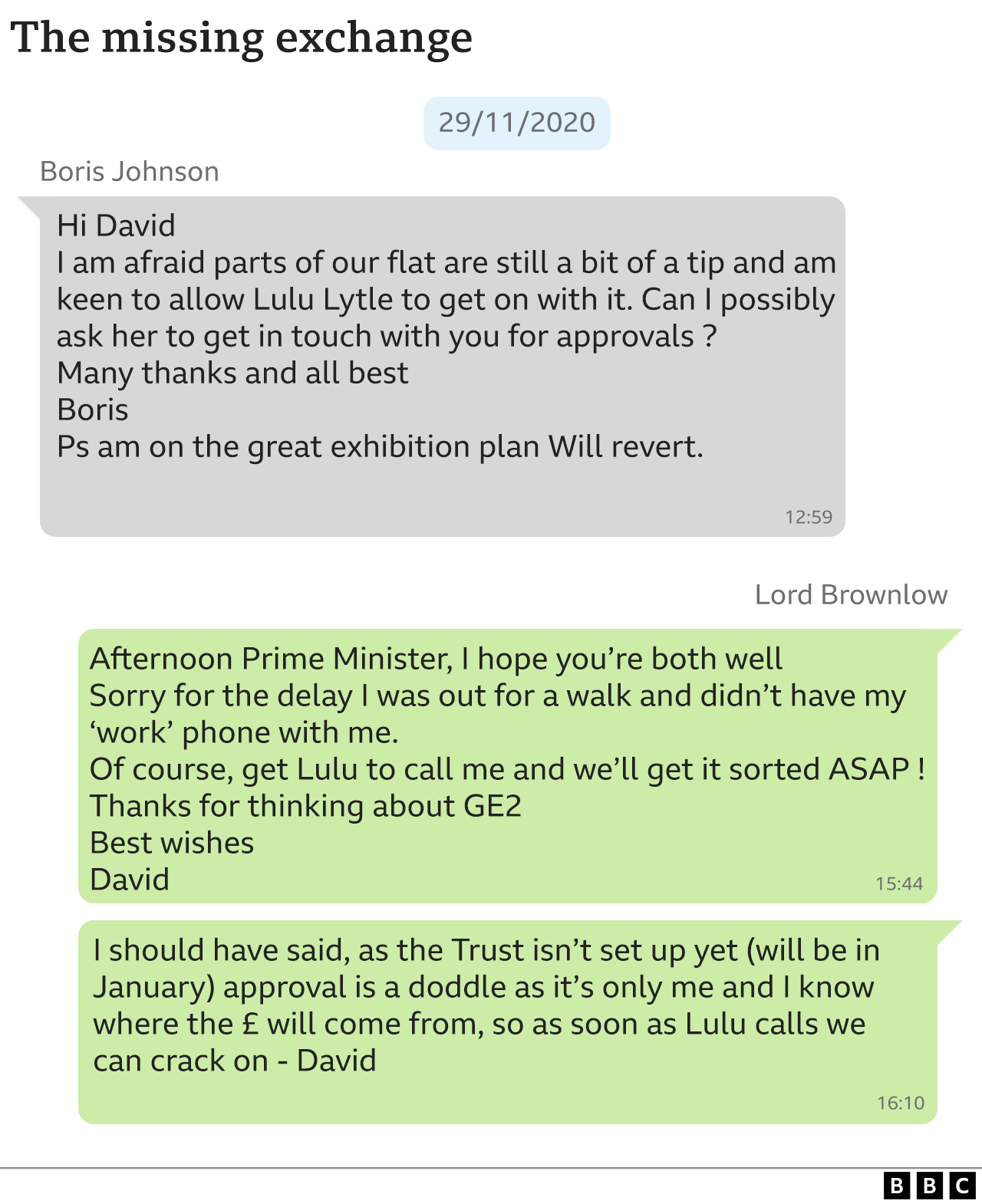
Lord Brownlow supplied the money, both directly and indirectly, for the changes to the flat, but Mr Johnson says he has now covered all the costs out of his own pocket.
The Conservative Party was fined £17,800 last month after the Electoral Commission found it had failed to accurately declare all of Lord Brownlow's donations towards the renovation.
The Downing Street buildings are publicly owned and prime ministers receive an annual grant of £30,000 to spend on their living quarters - if they want to spend more than that they have fund it out of their own pocket.


The saga of the Downing Street flat refurbishment has left several questions hanging.
Why did the key messages between Lord Brownlow and the prime minister take so long to come to light?
They were found by the Electoral Commission's investigation, but not inquiries triggered by the government itself.
Can or should more be done to record ministers' communications, amid accusations of "government by WhatsApp"?
Critics argue that informal channels, like the messaging service, lack transparency and allow inappropriate access and influence.
Who or what can hold the prime minister to account?
Lord Geidt, the independent adviser on ministers' interests, could see his powers increased and Boris Johnson himself said he wanted to "strengthen" the office.
Is another investigation looming?
While cleared of breaking ministerial rules, Mr Johnson could face an investigation by the parliamentary standards commissioner Kathryn Stone into his conduct as an MP.

Reflecting on Lord Geidt's report, Labour peer Peter Mandelson told the BBC's Week in Westminster the adviser had "loaded the gun... but ultimately chose not to pull the trigger on the prime minister".
"I think he would have been reluctant to do that even though he had the grounds to do so," he said in an interview which can be be heard on Radio 4 at 11:00 GMT on Saturday 8 January.
The former deputy prime minister, said Lord Geidt, who he had worked with in the past, was a man of "integrity", adding: "He found himself drawn into a mire of sleaze which I'm sure with hindsight he might have preferred not to have got involved with at all."

What was the Great Exhibition?
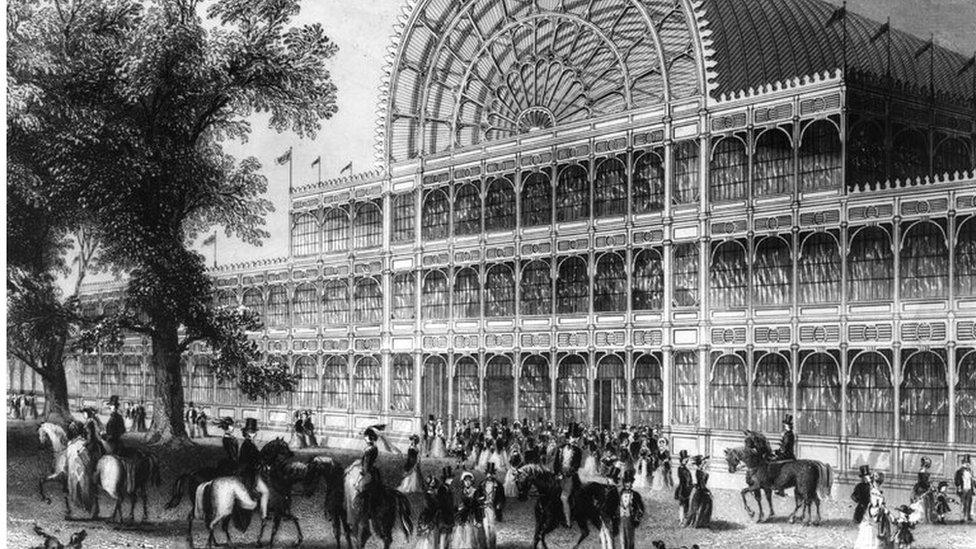
An engraving showing the crystal palace where the Great Exhibition was held in 1851
Lord Brownlow proposed the idea of a Great Exhibition festival in partnership with the Royal Albert Hall, a London venue for whom he acts as a Trustee.
The plan was inspired by the original Great Exhibition held in London's Hyde Park in 1851, showcasing new technologies from Britain and its empire at the time.
The peer discussed the proposal with then Culture Secretary Oliver Dowden but in the the end the government did not pursue the idea.
Instead the government will hold a series of events across the UK, entitled "Unboxed", external including light installations and a project encouraging people to grow crops.
Related topics
- Published7 January 2022
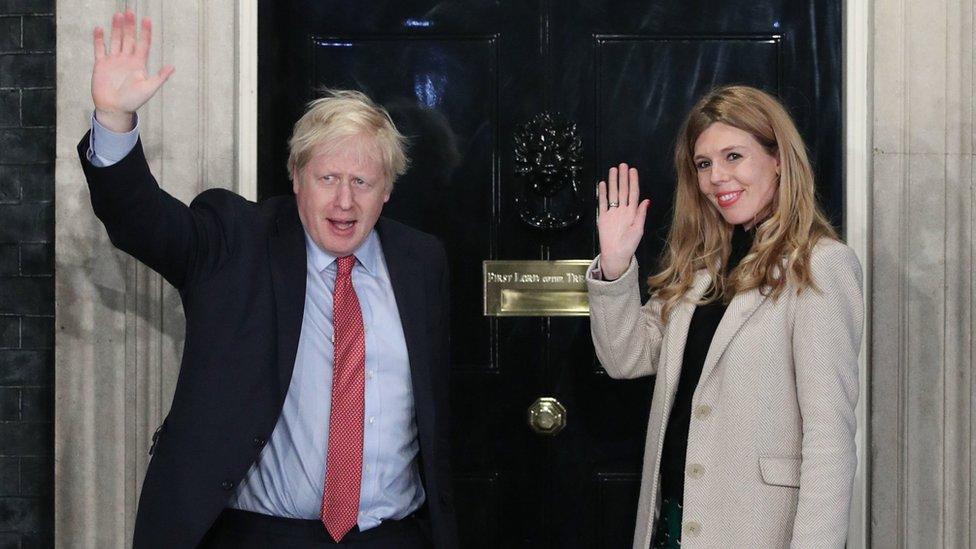
- Published9 December 2021
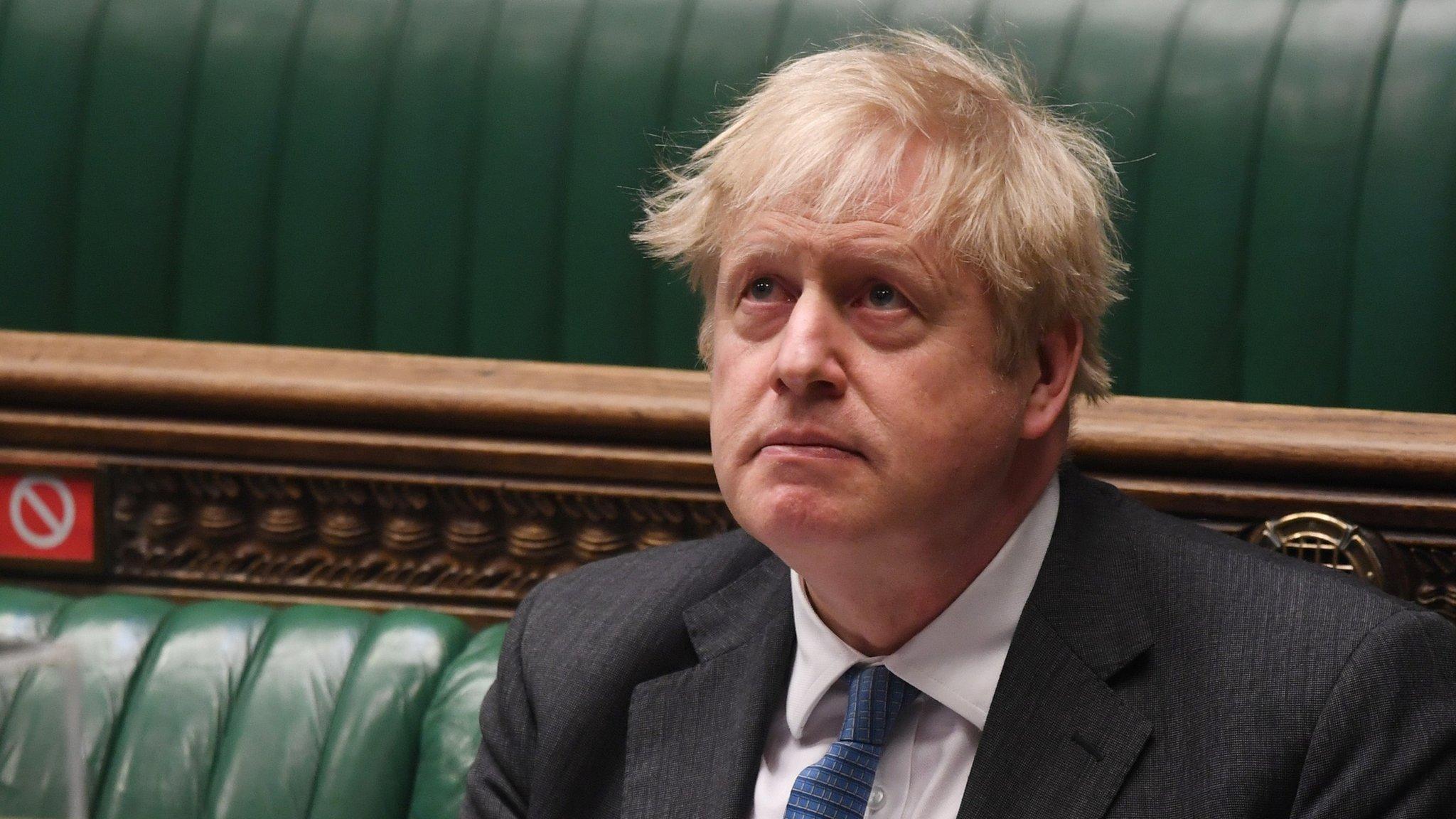
- Published6 January 2022
